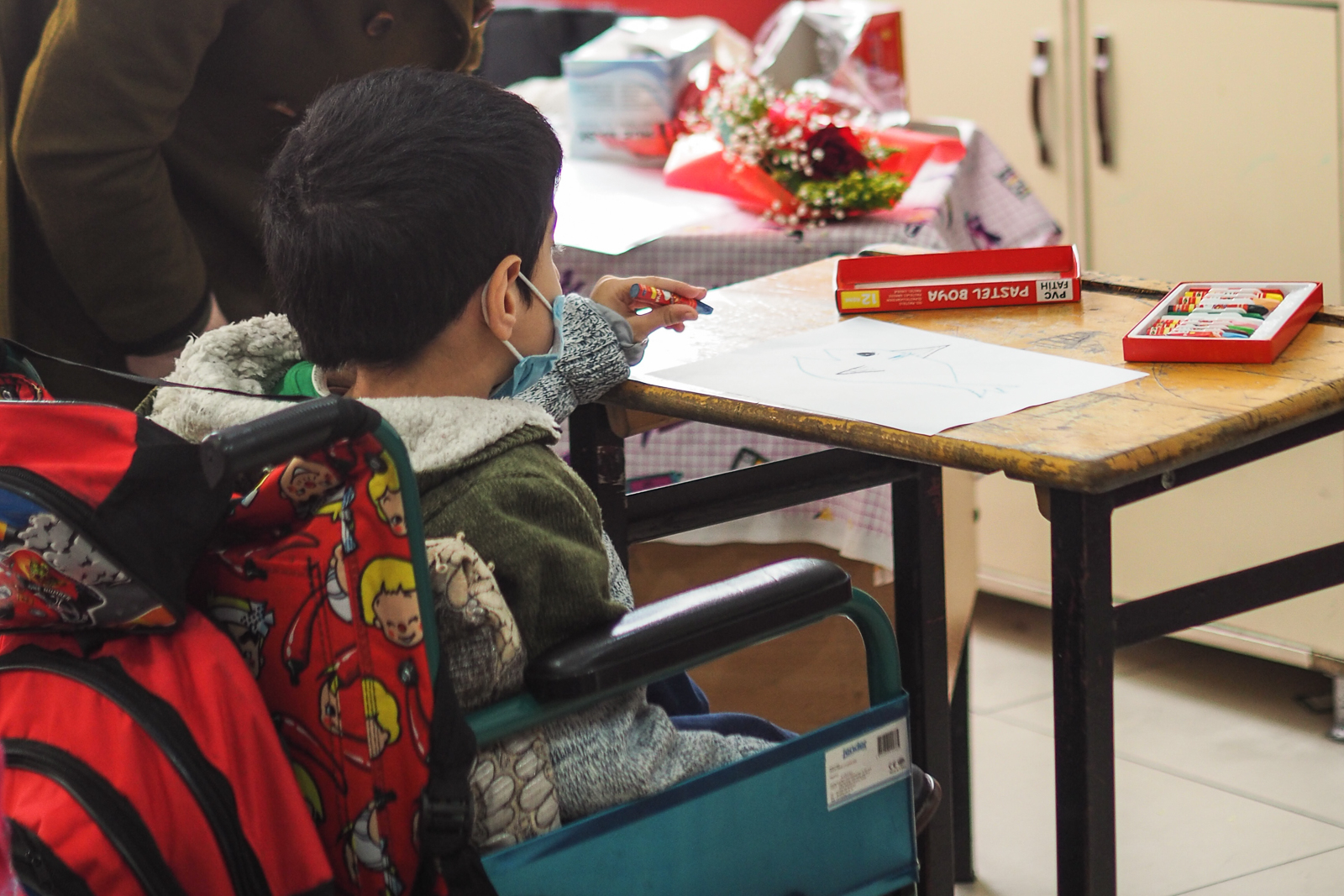
“Most people have a very limited understanding of disability and our rights – but the biggest challenge was getting an education”
Barriers to education, Children with disabilities, Global Youth Ambassadors, Right to education
Global Youth Ambassador Ceion Rollox writes about living with blindness in Guyana, the lack of accessibility at schools and his passion to help every child get into education.
Hello. My name is Ceion Rollox and this is my story.
I have been living with blindness for more than four years. In my country, Guyana, it is not easy to live with a disability. There are so many challenges that we face.
We are seldom treated as equals and most people have a very limited understanding of disability and our rights. But the biggest challenge I have had so far is getting an education.
I have faced intense discrimination because of my disability. There were no trained teachers or assistive technologies to support me.
My teachers didn’t understand how to teach someone who was blind and mostly just ignored me.
For a while I attended a school for the blind. Even there, the teachers were not able to support us properly. We felt separate from society – as though we had been cast aside.

But I was determined to do well, and worked hard to make sure I completed my education. As a Global Youth Ambassador for education, I am now passionate about giving all children in Guyana and around the world the chance to go to school.
One issue which continues to be one of the greatest challenges for persons with disabilities locally, nationally and globally is accessibility.
In Guyana, we need to persistently communicate and lobby with local ministers to ensure accessibility countrywide.
Our Disability Act says that buildings should meet the accessibility needs of persons with disabilities but many do not comply. The lack of accessibility prevents many persons with disabilities from having the same opportunities as everyone else – in employment, healthcare, education and many other areas.
This flaw means that many persons with disabilities do not go to school in Guyana and around the world. How can children with physical disabilities go to a six-storey school with no ramps or lifts?
While some schools may be physically and practically accessible, the same cannot be said for information taught in class.
Children with visual impairments need accessible learning materials. Children with hearing impairments need sign language support. And many children have other special educational needs.
I would like to see a nation and a world which caters for the needs of its entire people, especially on accessibility.
In my community, I would like to see the unification and inclusion of people from all walks of life. In Guyana, many children with disabilities miss out on a proper education, often due to lack of accessibility in schools countrywide.
Even when they do attend school, they are not given the chance to contribute appropriately and effectively in classes, much to their dismay. This has a long-term effect on their life chances and limits their ability to find employment.
As a Global Youth Ambassador for education, I am determined to do all I can to make sure every child in Guyana has the chance to go to school.
I would also like to have proper infrastructure in my community, such as level roads, covered drains and 100% accessibility of public buildings. With available funds, these can easily be adjusted to reach accessibility standards.
For instance, an automated system to provide verbal guidance in public places would ensure smooth navigation for the blind and visually impaired. Visual aids can be posted on doors and walls to give directional assistance for the deaf and hearing-impaired.
Deaf people also need better access to sign language. All information should be available in accessible formats such as Braille and electronic (facilitated through JAWS software).
Last, but not least, I would like to work with others to devise a programme focusing on the complete elimination of stigma and discrimination towards people with disabilities in our community.
More news

African youth rise up to demand early years spending target is met
